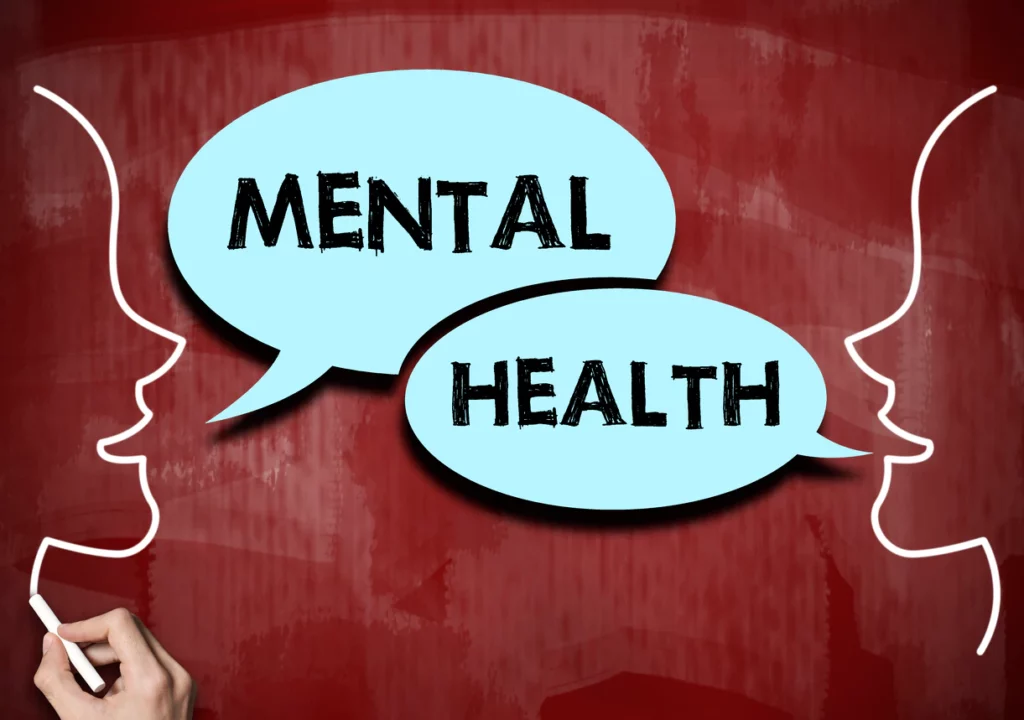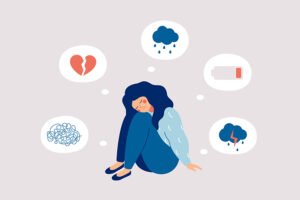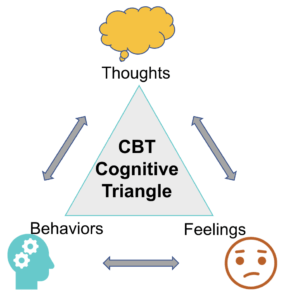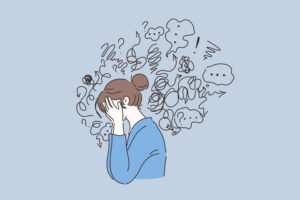Mental illness is a serious topic that has been getting more and more attention in the media. It can be difficult to understand what mental illnesses are, how they affect people, and how to treat them. In this article, we will cover all you need to know about it.
Understanding Mental Illness
Mental illness is a broad term that encompasses a wide range of disorders, each with its own unique set of symptoms. Scientists are trying to figure out what makes someone mentally ill. They think it is made for some reasons that are hard to know about.
There is no one-size-fits-all way to treat mental illness. You need to find the right treatment for the disorder that you have. However, most treatments typically involve some combination of medication and therapy.
If you or someone you know is struggling with a mental illness, it is important to seek help from a qualified professional. There is no shame in seeking help it can be life-saving. With proper treatment and support, people with mental illness can live full, happy lives.
Types Of Mental Illness
There are a variety of different mental illnesses, each with its own unique symptoms. Some of the most common mental illnesses include:
- Depression: Depression is a mood disorder that causes feelings of sadness, emptiness, and hopelessness. People who are depressed may also experience difficulty concentrating, changes in appetite or sleep patterns, and thoughts of suicide.
- Anxiety Disorders: Anxiety disorders are characterized by excessive fear or worry. People with anxiety disorders may experience panic attacks, intrusive thoughts or images, social anxiety, or phobias.
- Bipolar Disorder: Bipolar disorder is a mood disorder that causes extreme shifts in mood from mania (highs) to depression (lows). Bipolar disorder can make someone’s mood go up and down. This makes it hard for them to do their job and to make friends.
- Schizophrenia: Schizophrenia is a mental disorder characterized by abnormal social behavior and failure to recognize what is real. People with schizophrenia may hear voices or see things that are not real. They might believe things that are untrue. And they can have unusual thoughts. They might be paranoid, and they could also think about killing themselves.
Stages Of Mental Illness
Like many other diseases, mental illness does not affect everyone in the same way. It can progress through different stages, depending on the individual and the type of mental illness they have. The four most common stages of mental illness are:
- Early Stage: In the early stage of a mental illness, symptoms may be mild and manageable. People in this stage often try to hide their condition from others. They may feel ashamed or embarrassed about their symptoms.
- Middle Stage: As the disease progresses, symptoms become more severe and difficult to manage. This can cause people to withdraw from friends and family members. They may also experience changes in mood and behavior.
- Late Stage: In the late stage of a mental illness, symptoms are very severe and disabling. People who are in the late stage of a mental illness may need help with everyday tasks such as cooking, cleaning, and taking care of their hygiene.
- End-Stage: People’s condition gets worse until they die from mental illness or another illness. People in this stage often require round-the-clock care for all aspects of daily life. This includes eating and using the bathroom. They might not be able to speak because they will have trouble with their body. What happens in the end stages of their disease.
Symptoms Of Mental Illness
There are several different types of symptoms that can indicate a mental illness. Some common mental health symptoms include changes in mood, behavior, and thought patterns. Those who experience these kinds of problems may be suffering from some type of psychological disorder or disease.
Mood Symptoms
The mood is a symptom of depression, bipolar disorder, schizophrenia, and other mental illnesses. People who have problems with their minds usually do things to show they are not happy. These people might act out different feelings or talk about bad things, for example. They might sleep poorly, eat less, and feel empty.
Behavioral Symptoms
Symptoms of mental illness can also be seen in a person’s behavior. People with mental health problems may hurt themselves and not be able to do the things they love. They might also avoid people who love them and make them feel sad.
Thought Patterns
People who are suffering from a mental illness may also experience changes in their thought patterns. They may have trouble concentrating, feel confused, or have difficulty making decisions. They may also experience hallucinations or delusions.
Causes Of Mental Illness
There is no one cause of mental illness. Instead, it is a result of many different factors working together. Some of the most common causes of mental illness include genetics, environment, and lifestyle choices.
- Genetics: Mental illness can be passed down from parents to their children. This is known as heredity or genetic inheritance. If one or both parents have a mental illness, there is a greater chance that their child will also develop a mental illness.
- Environment: The environment in which a person grows up can also play a role in causing mental illness. Traumatic experiences such as abuse or neglect can increase the risk of developing a psychological disorder later in life. Living in poverty or being homeless can also lead to increased rates of mental health problems.
- Lifestyle Choices: Lifestyle choices can also contribute to the development of a mental illness. Smoking, drug and alcohol abuse, and poor nutrition can all increase the risk of developing a psychological disorder. Obesity has also been linked with increased rates of depression and anxiety disorders.
Risk Factors 
There are several risk factors that increase the chances of developing a mental illness. These include:
- Age (young people and older adults)
- Family history of mental health problems
- Genetic vulnerability to stress or anxiety
- Close family member with schizophrenia, bipolar disorder, depression, or substance abuse problem
- Low socioeconomic status and unemployment rates in the area where you live
When To Seek Professional Help?
People who suffer from mental illness should seek professional help when they:
- Feel sad and hopeless for a week or more
- Develop symptoms of psychosis, such as hearing voices or feeling paranoid
- Start to abuse drugs or alcohol regularly
- Have thoughts about hurting themselves or someone else
- Think their daily routine is no longer enjoyable and meaningful due to depression.
Diagnosis Of Mental Illness
Doctors usually talk to someone to find out if they have a mental illness. They ask questions about their symptoms and medical history, do physical exams, and do lab tests. Diagnosis includes looking for other possible reasons. For example, you might have side effects from medication or be using drugs.
Treatment Of Mental Illness
Psychological therapies are the main treatment options for mental health problems. These include:
Cognitive-behavioral therapy (CBT)
This type of therapy focuses on changing the way you think and behave. You learn to replace negative thoughts with more realistic or positive ones, which helps change your moods and behaviors. CBT is a treatment that is effective for treating anxiety, depression, eating disorders, obsessive-compulsive disorder (OCD), and posttraumatic stress disorder (PTSD).
Psychoanalytic psychotherapy
This is a form of talk therapy that explores your past experiences for clues about how they affect who you are today. Psychoanalysis is a way to understand how you work. It can help you solve problems on your own. It may also involve hypnosis or free association—a method where patients speak whatever comes into their mind and without censoring anything that occurs to them.
Interpersonal therapy
This type of therapy helps people understand and improve their relationships with others. It is often used to treat depression, which can be caused by problems in personal relationships.
Family Therapy
Family therapy involves all the members of a family who are affected by a mental illness. They meet together with a therapist to discuss how the illness is impacting them and what they can do to help support each other.
Medication
Medication may also be prescribed to help control symptoms of mental illness. Many different types of medication can be used, depending on the specific condition. Some medications work by changing the chemicals in your brain, while others turn on or off certain activities in your brain.
Mental illness is a complex condition that comes in many forms. People who suffer from mental illness should get help when they feel sad and hopeless for a long time. People who need to see a doctor must have symptoms of psychosis, abuse drugs or drink alcohol, want to hurt themselves or someone else, and think that their daily routine is not enjoyable anymore due to depression. If your family members have mental health issues, they might affect you too. It would be good if you take precautions early on so that it doesn’t get worse.
Tips To Deal 
Here are a few tips to deal with mental illness
- Seek professional help: The first step is to seek professional help. This can be done by either consulting a psychiatrist or general practitioner (GP).
- Take medications: Some illnesses make you feel bad. They are called mental illnesses. Some medicines can help get rid of symptoms of illness like depression, bipolar disorder, and schizophrenia. Doctors might also recommend counseling or other treatments for mental health problems. They may be talking about yoga and meditation.
- Identify triggers: Identifying the problems that make you feel bad will help you. It is hard to do self-care, but knowing about these problems can help.
- Practise Self-Care Methods: Doing this regularly keeps stress levels low which ultimately leads to good mental health. And it’s much easier said than done but it’s definitely worth the effort!
- Stay connected: This is especially beneficial for people with depression and other mood disorders. It can be hard to do anything when you are feeling down. Talk to your friends and family. You will feel better after talking to them.
- Get enough sleep and exercise regularly: This one’s a no-brainer! When you’re taking care of your body, it takes some load off your mind. Make sure to get enough sleep and exercise regularly for optimum physical and mental health.
- Eat healthily and avoid alcohol and drugs: The food you eat directly impacts your mental state…so make sure to focus on eating healthy, whole foods in moderation. Alcohol and drugs are bad for your body and mind. If you want to feel good, then do not drink or use any drugs.
- Keep your stress levels down: Stress can lead to depression. Try your best to keep your stress levels down so you don’t have to deal with mental illness symptoms in the future.
- Positive thinking is key to staying happy in the face of adversity: Lastly, and most importantly, always remember that positive thinking is key to staying happy in the face of adversity. No matter how bad things might seem at the moment, they will eventually pass so don’t lose hope.
Mental illness, though not very widely spoken about, is a common problem that a lot of people face today. There are many treatments for mental illness. Some are medicines, and others are psychological therapies like counseling or psychoanalysis. If you or someone you know has a mental illness, get help. Get professional help.. With early diagnosis and treatment, mental illness can often be controlled and even cured.
Helping Someone Suffering From Mental Illness
If you know someone who is suffering from a mental illness, there are things you can do to help them, such as:
- Say that you will help. It can be hard for someone who is struggling with their mental health to know that they need help. Let them know that you care about them and are there for them no matter what.
- Second, encourage them to seek professional help. There are many different types of therapy available, and one will likely be right for the person you’re helping. If they’re resistant to getting help, don’t give up; keep encouraging them until they decide to take the step necessary to get better.
- Finally, offer practical support as well. You can help someone feel better by caring for their kids or pets, or by doing the shopping. You can also talk to them when they need it. Simply being there for someone who is struggling with mental illness can make a huge difference.
- Mental health is an important aspect of our overall well-being that often goes overlooked.
Conclusion
There are many good reasons why you should care about your mental health. Taking care of your mental health is one way to protect yourself from mental health problems. We hope these tips will help you find your way. You can try things and make mistakes. If we learn from them, they will lead us to find much more happiness down the road.
It takes work every day but if you do it right then things will be easier later on. It is okay to ask for help and admit when you don’t know how to do something. This could make your life better. Seek professional help if you need it. You should also take care of your body and mind.
If you are looking for affordable Online Counseling MantraCare can help: Book a trial therapy session
















